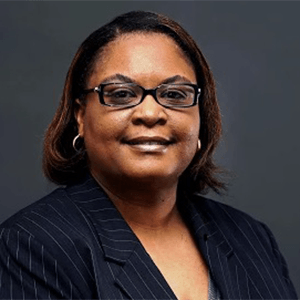In celebration of Black History Month, the American Statistical Association has recognized a group of 12 Black/African American professors, researchers, volunteers, and health care professionals who have made tremendous contributions to the statistics field. We are extremely proud that of the 12 people featured, 4 are members of our Harvard Biostats community.
We will be featuring their interviews over the next few weeks.
 Alumna MELODY GOODMAN, PhD ’06Affiliation: Associate Dean for Research and Associate Professor of Biostatistics, New York University School of Global Public HealthEducation: BS, Economics and Applied Mathematics and Statistics, State University of New York at Stony BrookMS, Biostatistics, Harvard UniversityPhD, Biostatistics (Minors: Social Determinants of Health Disparities and Theoretical Statistics), Harvard University
Alumna MELODY GOODMAN, PhD ’06Affiliation: Associate Dean for Research and Associate Professor of Biostatistics, New York University School of Global Public HealthEducation: BS, Economics and Applied Mathematics and Statistics, State University of New York at Stony BrookMS, Biostatistics, Harvard UniversityPhD, Biostatistics (Minors: Social Determinants of Health Disparities and Theoretical Statistics), Harvard University
I was born and raised in New York City (NYC)—South Jamaica, Queens, to be exact. I went to NYC public schools for K–12. I have always loved math, except in 3rd grade when I struggled with multiplication. I quickly recovered, winning the math award in 6th grade. I graduated high school and started college when I was 16.
I was always told I was a smart kid, so I should become a doctor or lawyer. I knew I did not want to be a lawyer, so like many others, I went to undergrad as a pre-med student. In my first semester, I heard senior pre-med students talking about cat lab, where you dissect a cat. They seemed so excited about it; I dropped the pre-med major the next day.
After a long period of being undecided, I chose to major in applied mathematics and statistics, which is a separate department from the mathematics department at Stony Brook University. I fell in love with combinatorics and game theory, picking up a double major in economics by taking multiple courses that were cross-listed in both majors. I enjoyed the intersection of these disciplines and, with my desire to be independently wealthy, I took a job as a financial analyst on Wall Street after graduating.
That I did not love, so after two years, I decided to pursue doctoral training in biostatistics at Harvard University. I first learned of biostatistics while conducting a Google search for “math in health” as I was starting to think about graduate school.
The intersection of statistics and public health is where I truly belong. I originally thought I would go into industry, combining my investment banking and biostatistics knowledge. However, in graduate school, I consistently complained I had never had a Black professor. When I was at the point of considering jobs, Rebecca Betensky asked me whether I would consider academia. I had complained about the problem, but was I willing to be part of the solution? I was; I wanted students like me to not have to complain about not having a Black professor.
I worked at Stony Brook University School of Medicine, then at Washington University in St. Louis School of Medicine, and am currently at New York University School of Global Public Health, where I am the associate dean for research and an associate professor of biostatistics.
In 2021, I was elected a fellow of the American Statistical Association and was the inaugural recipient of the Societal Impact Award from the Caucus for Women in Statistics.
The work we are doing to educate the general public about quantitative public health data literacy and to expose racial and ethnically diverse students to biostatistics and data science is having great impact. Recently, an alum of our MPH program asked to meet with me. She wanted to tell me how much she appreciated taking my course (introduction to data management and statistical computing) for the skills she gained but also for the inspiration she received as a Black woman to have me as a professor. This is why I do what I do.



